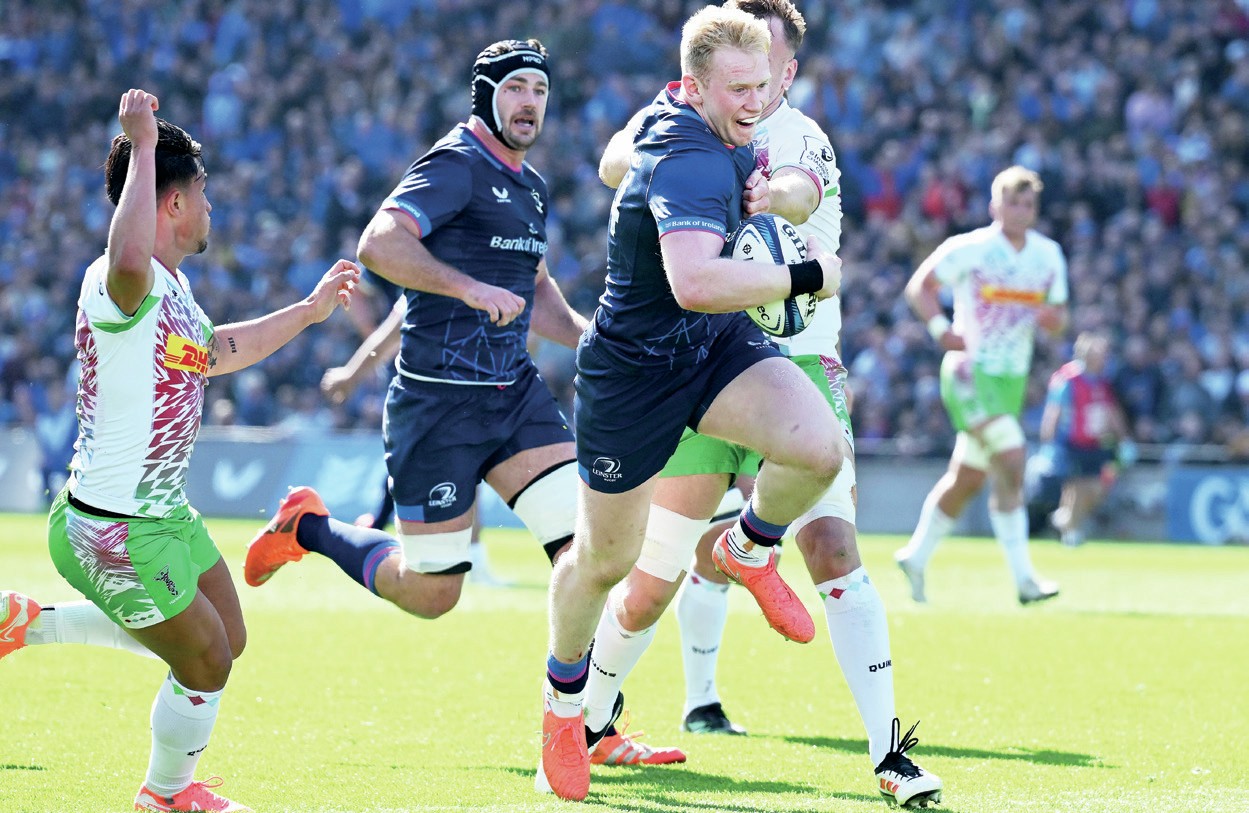 There is no escaping the fact that Dylan Hartley‘s sending-off at Twickenham in the Premiership final last weekend cost Northampton the chance of being crowned champions for the first time. Given that Hartley is a serial offender when it comes to indiscipline, and tragically for the player and his club still has problems keeping his hair-trigger temper in check, it is logical to assume that he will probably be relieved of the Saints captaincy before the start of next season.
There is no escaping the fact that Dylan Hartley‘s sending-off at Twickenham in the Premiership final last weekend cost Northampton the chance of being crowned champions for the first time. Given that Hartley is a serial offender when it comes to indiscipline, and tragically for the player and his club still has problems keeping his hair-trigger temper in check, it is logical to assume that he will probably be relieved of the Saints captaincy before the start of next season.
The only hitch with that assumption is that neither the inner sanctums of rugby clubs – nor their fans forums – are always logical places. For instance, the views on the Northampton Saints official website, and on the unofficial ‘Come On You Saints’ message board, were wildly conflicting in their attitude towards Hartley this week.
Many were fiercely critical of the Saints skipper concluding that the referee, Wayne Barnes, had no option but to show Hartley a red card after having the words “you f****** cheat” directed at him. However, a significant number felt that he had been the victim of a miscarriage of justice.
Their ire was directed at Barnes, subscribing to the theory that a referee desperate to be the central attraction got it wrong, and that Hartley was directing his comment to the Leicester hooker, Tom Youngs. Furthermore, they argued that the RFU disciplinary process was always going to back ‘their man Barnes’ to the hilt.
This column has been critical of the rise of a celebrity refereeing culture, and some of the damaging fall-out from that culture was evident in the events that led to Northampton being reduced to 14 men.
One of the first things that the final highlighted is that the vogue for constant communication between referees and players is more of a curse than a blessing.
 If referees blather incessantly at players, coaching them in what they can and can’t do it encourages an exchange of views. It also promotes a dependency on the official by players, and a laziness among them when it comes to knowing the laws.
If referees blather incessantly at players, coaching them in what they can and can’t do it encourages an exchange of views. It also promotes a dependency on the official by players, and a laziness among them when it comes to knowing the laws.
All of these factors were evident in the meltdown during the Premiership final.
First, the exchange of views. Hartley decided to give Barnes the benefit of his opinion in ripe language a few minutes before the “cheat” call.
If Barnes had taken action then, despatching Hartley to the sin-bin rather than issuing a warning, his pre-emptive strike would have had a double benefit. It would have given the Saints hooker 10 minutes to contemplate just how much his indiscipline could harm his team while, when the sentence had been served, preserving the final as a contest between two full strength teams.
Next, the dependency factor. Turn the clock back 18 years to the crossover from amateur to professional and players were expected to know the laws relating to ruck, maul, offside – and restarts – without being spoon-fed by the referee. The protocol was also that no player had the right to talk to the referee, and, if they needed to, the only people who could approach him were the two captains. Instead, what we had in the final was a commentator-referee and 30 players with more rabbit than Bugs Bunny.
Lastly, laziness. As professional sportsmen there is no excuse for not having a detailed understanding of the laws. Yet, there were clear indications that Hartley and Stephen Myler, the Saints fly-half, had not done their re-start homework.
The video evidence suggests Hartley was incensed by Barnes’ decision to call a scrum because he thought the ball was dead from Myler’s drop-out. But Barnes made the correct call, because Myler’s drop-out did not hit the ground or an opposition player before going out – yet confusion reigned in the Saints’ camp.
Another detrimental spin-off in evidence at Twickenham is that coaches like Leicester’s Richard Cockerill now consider it their right to harangue referees, fourth officials, touch-judges or assessors from the touchline.
I believe officials should be accountable and prepared to explain controversial decisions after matches. However, during a match their independence should be sacrosanct, and Cockerill and company should be hit hard with disciplinary sanctions to enforce it.

3 Comments
You must be logged in to post a comment Login
Leave a Reply
Cancel reply
Leave a Reply
You must be logged in to post a comment.
























TomC
4 June 2013 at 12:50 PM
What’s next a defense of Hitler?
tomthepom
4 June 2013 at 8:49 PM
Barnes gave Hartley a crystal-clear warning; this attempt to blame the ref is risible and ill-argued…
Roy
5 June 2013 at 12:08 PM
In my view, a bit of banter or incidental chatter between players and the referee is ok as long as it’s not offensive/abusive.
I didn’t see the game in question, so won’t comment on the correctness of the decision.
But I would have to dis-agree about the ‘in-game-coaching’ comment in this article.
Anyone who’s ever played the game knows there are instances in a game when you lose your positional bearings. So it’s good to hear the ref inform you to ‘step back’ or what-ever.
Hartley has a ‘history’. So if the ref warns him about back chat and he didn’t take heed, whose fault is it? Certainly NOT the ref’s.
And if he felt he was hard done by, why didn’t he appeal? especially as a ban would mean he misses the Lions tour.